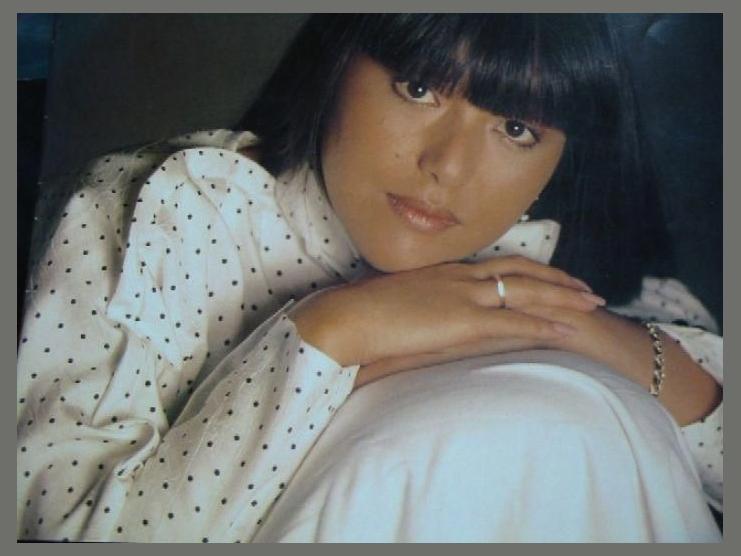 Hiromi Iwasaki
Hiromi Iwasaki
Hiromi Iwasaki: The Enchanting Voice Behind "Madonnatachi no Rarabai"
In the ethereal realm of Japanese music, the enigmatic Hiromi Iwasaki stands as a beacon of artistry and outspokenness. Her haunting voice, which soars effortlessly through the octaves, has captivated audiences for decades, leaving an enduring mark on the musical landscape.
Early Life and Career:
Hiromi Iwasaki was born in Tokyo, Japan, on March 17, 1965. From an early age, she displayed an extraordinary talent for singing. At the age of 17, she joined the band "Lulu," which released several albums and toured extensively throughout Japan.
Solo Success and "Madonnatachi no Rarabai":
In 1985, Iwasaki embarked on a solo career. Her breakthrough came with the release of her single "Madonnatachi no Rarabai" in 1989. The song, with its haunting melody and introspective lyrics, became an instant hit, propelling Iwasaki to stardom. It remains one of her most iconic and beloved works, etching its name into Japanese popular culture.
Musical Style and Influences:
Iwasaki's music defies easy categorization. It seamlessly blends elements of Japanese traditional music, Western classical influences, and modern pop sensibilities. Her ethereal vocals, often compared to the legendary Kate Bush, create an otherworldly atmosphere that transports listeners to a realm of introspection and wonder.
Challenges and Controversies:
Throughout her career, Iwasaki has faced challenges and controversies. Her outspoken nature and willingness to challenge societal norms have occasionally drawn criticism. In 1994, she was arrested for drug possession, a scandal that threatened to derail her career. However, Iwasaki emerged from the experience with renewed determination, using her music as a platform to raise awareness about addiction and mental health issues.
Discography:
Hiromi Iwasaki has released numerous albums and singles throughout her career. Some of her most notable works include:
* Madonnatachi no Rarabai (1989)
* Luna (1991)
* Galileo (1995)
* Iwasaki Hiromi Best (1997)
* Nocturne (2000)
Members and Collaborators:
Iwasaki has collaborated with a wide range of musicians throughout her career. She has performed with the Tokyo Metropolitan Symphony Orchestra, the NHK Symphony Orchestra, and renowned guitarist Pat Metheny. Her backing band, which has changed over the years, has featured talented musicians such as keyboardist Yoshio Okazaki and bassist Tomohiko Hata.
Legacy and Impact:
Hiromi Iwasaki's influence on Japanese music cannot be underestimated. Her haunting voice and evocative lyrics have inspired generations of musicians and listeners alike. Her music continues to resonate with audiences, offering solace, introspection, and a glimpse into the enigmatic depths of the human soul.
In the ethereal realm of Japanese music, the enigmatic Hiromi Iwasaki stands as a beacon of artistry and outspokenness. Her haunting voice, which soars effortlessly through the octaves, has captivated audiences for decades, leaving an enduring mark on the musical landscape.
Early Life and Career:
Hiromi Iwasaki was born in Tokyo, Japan, on March 17, 1965. From an early age, she displayed an extraordinary talent for singing. At the age of 17, she joined the band "Lulu," which released several albums and toured extensively throughout Japan.
Solo Success and "Madonnatachi no Rarabai":
In 1985, Iwasaki embarked on a solo career. Her breakthrough came with the release of her single "Madonnatachi no Rarabai" in 1989. The song, with its haunting melody and introspective lyrics, became an instant hit, propelling Iwasaki to stardom. It remains one of her most iconic and beloved works, etching its name into Japanese popular culture.
Musical Style and Influences:
Iwasaki's music defies easy categorization. It seamlessly blends elements of Japanese traditional music, Western classical influences, and modern pop sensibilities. Her ethereal vocals, often compared to the legendary Kate Bush, create an otherworldly atmosphere that transports listeners to a realm of introspection and wonder.
Challenges and Controversies:
Throughout her career, Iwasaki has faced challenges and controversies. Her outspoken nature and willingness to challenge societal norms have occasionally drawn criticism. In 1994, she was arrested for drug possession, a scandal that threatened to derail her career. However, Iwasaki emerged from the experience with renewed determination, using her music as a platform to raise awareness about addiction and mental health issues.
Discography:
Hiromi Iwasaki has released numerous albums and singles throughout her career. Some of her most notable works include:
* Madonnatachi no Rarabai (1989)
* Luna (1991)
* Galileo (1995)
* Iwasaki Hiromi Best (1997)
* Nocturne (2000)
Members and Collaborators:
Iwasaki has collaborated with a wide range of musicians throughout her career. She has performed with the Tokyo Metropolitan Symphony Orchestra, the NHK Symphony Orchestra, and renowned guitarist Pat Metheny. Her backing band, which has changed over the years, has featured talented musicians such as keyboardist Yoshio Okazaki and bassist Tomohiko Hata.
Legacy and Impact:
Hiromi Iwasaki's influence on Japanese music cannot be underestimated. Her haunting voice and evocative lyrics have inspired generations of musicians and listeners alike. Her music continues to resonate with audiences, offering solace, introspection, and a glimpse into the enigmatic depths of the human soul.